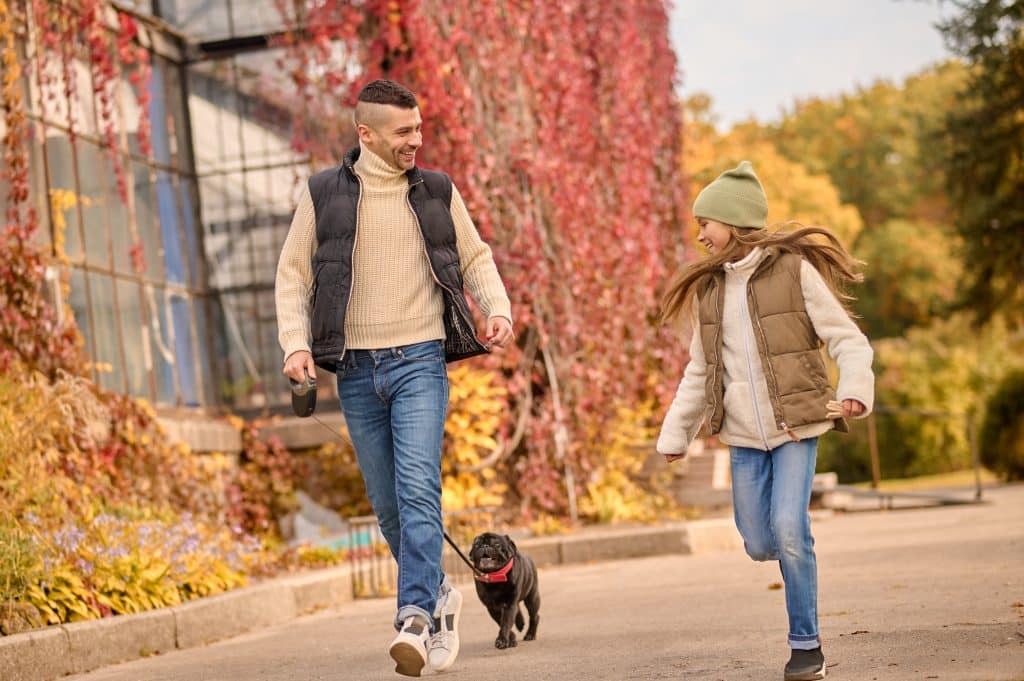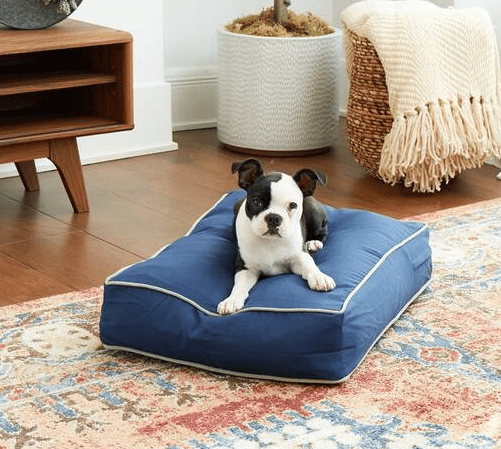So, you just got a new puppy. That’s a huge move! This is an exciting time for your family, but it can also be a lot of work. Puppies need to be trained properly in order to become well-behaved members of society. But training a puppy can be difficult – especially if you’re unsure where to start. It is natural to feel a little overwhelmed if you have never done it before. Luckily this article is here to provide tips on how to train your puppy without going crazy!
Contents
The Things A Puppy Needs Training On

You must train puppies on various things before they can become well-behaved adult dogs. The first and most important thing they need to learn is basic obedience commands such as sit, stay, come, and down. These commands will help you to control your puppy’s behavior and teach them basic manners. Puppy training should also focus on socialization, essential for helping your puppy feel comfortable around other people and animals.
You’ll also need to work on housebreaking your puppy, so they know where it is appropriate to go to the bathroom. With patience and consistency, you can train your puppy on all of these things and set them up for a happy and healthy life.
Tips To Train Your Puppy
When you first get a puppy and learn about everything you need to teach them, it may seem impossible to do while still staying sane. However, the following tips can go a long way in helping you to train your puppy without going crazy:
Be Consistent

The first thing to learn about training your puppy is consistency in your approach. Your puppy will quickly become confused if you’re inconsistent with your commands, rules, and rewards. Inconsistency can lead to behavioral issues down the road. Furthermore, it’s important to be patient when training your puppy. Like all learning experiences, some dogs will pick up new commands quickly, while others may need more time and repetition.
But as long as you’re consistent in your approach, you’ll eventually see results. And even if the process isn’t always easy, remember that the effort will pay off in the end when you have a well-trained dog who knows what you expect of them.
Find A Quiet Space

Finding a quiet space where you can work on training without distractions can be a challenge. However, finding at least a few moments each day to focus on training is essential. Doing so will help your puppy learn more quickly and solidify good behavior. One way to find a quiet space is to create an enclosed area using baby gates or a playpen. This will allow you to keep your puppy contained while still giving him room to move around.
You can also use a crate if your puppy is comfortable being in one. Once you have found a quiet space, you can begin working on basic commands such as sit, stay, and come. With patience and consistency, you will soon have a well-trained puppy that is a joy to be around.
Stay Positive Through The Process

Training a puppy can be time-consuming and frustrating, but staying positive throughout is important. Dogs are highly intelligent creatures and can sense when their owner is angry or upset. If you remain calm and patient, your puppy will pick up on this and be more likely to cooperate. Of course, there will inevitably be accidents and messes along the way, but try to view them as part of the learning process.
Every time your puppy eliminates in the correct spot, they’re making progress. Positive reinforcement is vital – give your puppy plenty of praise and treats when they do something right. With time, patience, and positivity, you’ll successfully train your puppy and build a lifelong bond.
Utilize Treats

Treats can be a helpful tool when it comes to training your puppy. Puppies are motivated by food, so offering them a treat for good behavior can reinforce the desired behavior. However, it is important to use treats wisely. If you give your puppy a treat every time they perform the desired behavior, they will soon come to expect a treat every time and may become uncooperative if they do not receive one.
Instead, vary the timing of the treats and only offer them occasionally. Doing this will help to keep your puppy’s motivation high and prevent them from becoming reliant on treats. In addition, make sure to use small treats they can consume quickly. Small treats will help keep your puppy’s attention focused on the task rather than the treat itself. With a little trial and error, you can find the right balance of treats to train your puppy effectively.
Find The Right Time

Timing is one of the most important things to consider when you are training. You want to find a time when your puppy is alert and energetic but not too hyperactive. If you start too late in the day, your puppy may be too tired to focus. Puppyhood is also a critical period for socialization, so you’ll want to find opportunities to expose your pup to new people and environments.
Of course, you’ll also need to be aware of your puppy’s developmental stage. Basic commands such as “sit” or “stay” can usually be started around 8-10 weeks old, but more complex behaviors like leash walking may need to wait until your pup is a bit older. By finding the right training window, you’ll set your puppy up for success.
Incorporate Bite Inhibition

Finally, it is essential that you don’t forget about bite inhibition. Bite inhibition is the dog’s ability to control the force of his mouth when he bites. It’s a natural behavior for puppies – they learn it from their mothers and littermates. When they play together, their mouths are frequently open, and their teeth make contact with their skin. Suppose one pup bites too hard; the other yelps and pulls away. The pup that caused the yelp learns that his teeth can hurt, and he becomes more gentle with his mouth.
As a result, they learn to control the force of their bite. You can incorporate bite inhibition into your puppy’s training by playing games like tug-of-war and fetch. Every time your puppy’s teeth make contact with your skin, let out a high-pitched yelp. The yelp will startle him and cause him to release his grip. Then, give him lots of praise and continue playing. With time and patience, your puppy will learn to control the force of his bite – and you’ll have a fun game to play together.
You Are Ready To Train Your Puppy!
Training your puppy doesn’t have to make you crazy. Using some tips above, you can set your pup up for success. Then, with patience, positivity, and the right timing, you’ll be well on your way to a well-trained puppy. And even if it seems like a lot of work now, remember that the effort you put in will pay off in the coming years. So get started today – your pup will thank you for it, and you will appreciate their improved behavior!


